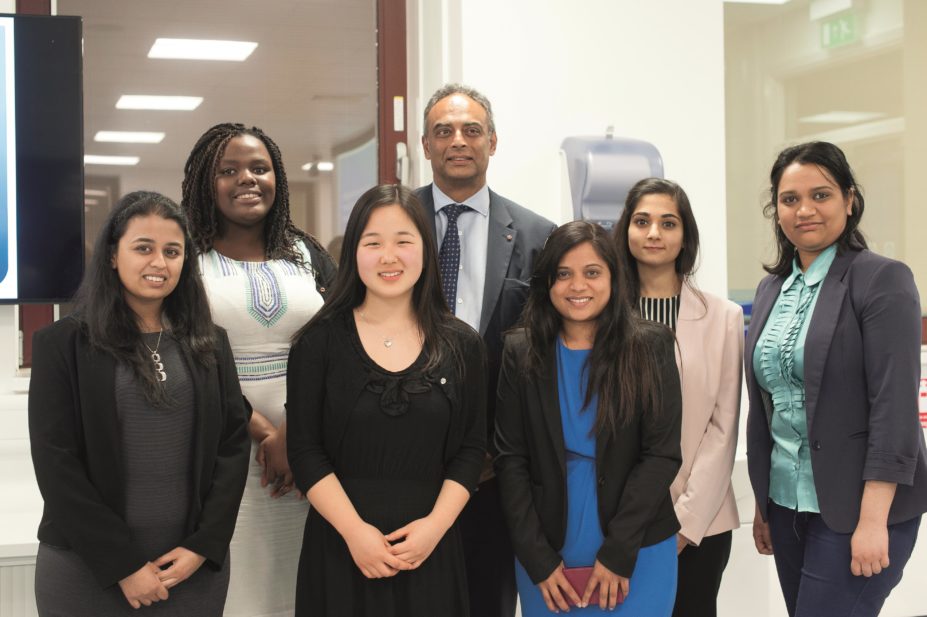
Laura Bennetto
The next generation of pharmacists will need to conduct research as part of routine pharmacy practice in order to provide evidence on the efficacy of pharmacy interventions, according to the president of the Royal Pharmaceutical Society (RPS).
Ash Soni, a community pharmacist by background, said research into pharmacy practice would become “absolutely key” to pharmacists in the coming years with the increasing importance of evidence-based interventions.
Soni addressed assembled students and guests at an event held at the University of Reading on Thursday 28 May to celebrate research conducted by undergraduate pharmacy students. It was organised by the University of Reading School of Pharmacy and the Thames Valley Local Practice Forum.
“The [health] world is moving into an evidence-based arena much more, and one of the challenges for us is to recognise our role in research and make sure it’s embedded into the future of the profession, in a way that probably in my generation wasn’t there,” said Soni.
“We are going to have to evolve and show the evidence to support what we do in practice. And if we are going to continue to evolve, more and more of that needs to happen.”
He said that, at present, pharmacists often had only anecdotal evidence to support claims that certain aspects of their practice are effective.
In November 2014, the RPS disputed a proposed guideline from the National Institute for Health and Care Excellence (NICE) which said pharmacist-led medication reviews were “not cost effective” for the NHS. The RPS said the economic assessment was not in line with evidence of the benefits to patients seen in current pharmacy practice. But NICE’s literature search had found only a limited number of studies into the effectiveness of the initiative.
At the event, six University of Reading School of Pharmacy students presented their undergraduate dissertation projects as part of a research competition. The dissertations covered topics including the design and synthesis of oncology treatments, an investigation into i-motif DNA structures and an audit of the management of post-operative nausea.
First place went to Eunyoung Lee for her project on the development of microgels to improve drug delivery in treating bladder cancer. Second place went to Tendai Muzambi for her work on values-based selection of MPharm undergraduates. Third place went to Tejal Shah for a project on the recording of near misses in community pharmacy dispensing, organised in collaboration with Day Lewis Pharmacy.
Caroline Parkhurst, teacher practitioner at the University of Reading School of Pharmacy and a professional services pharmacist at Day Lewis Pharmacy, supervised Shah’s project and helped to arrange her data collection in the company’s pharmacies.
Parkhurst says there is a lack of research into clinical governance and safety in community pharmacy settings at present. “There’s much more that needs to be done,” she says. “When we were doing the research into looking at introducing [a project] on near misses, there was very little [research in] community pharmacy; a lot of it was hospital-based.”

